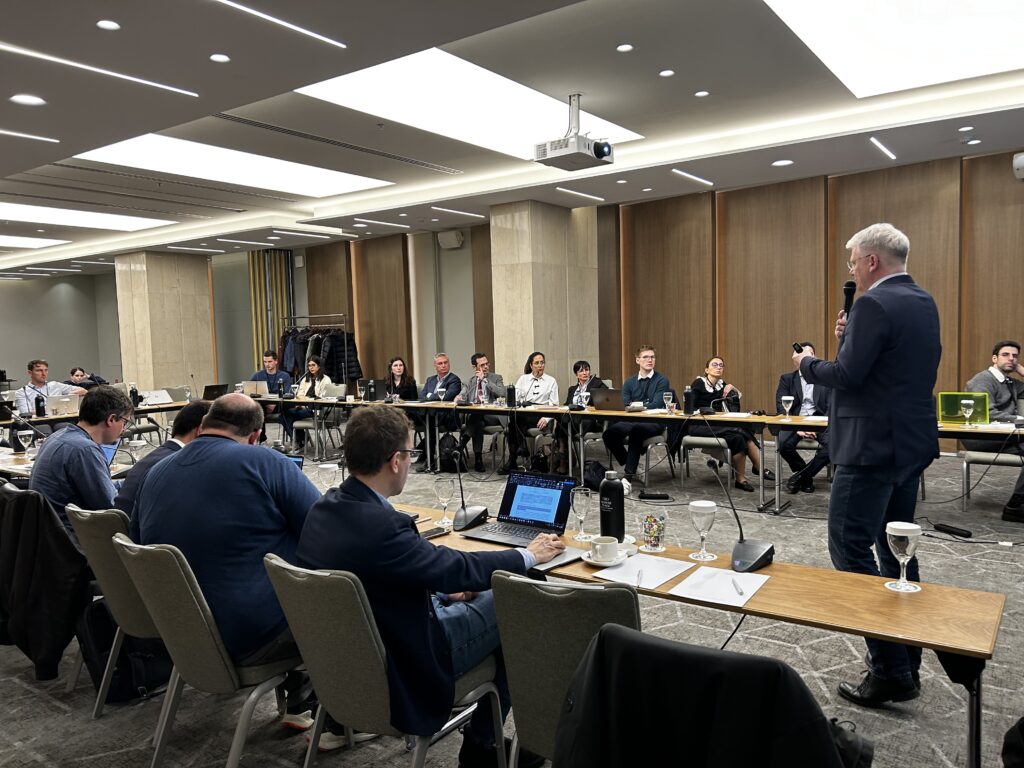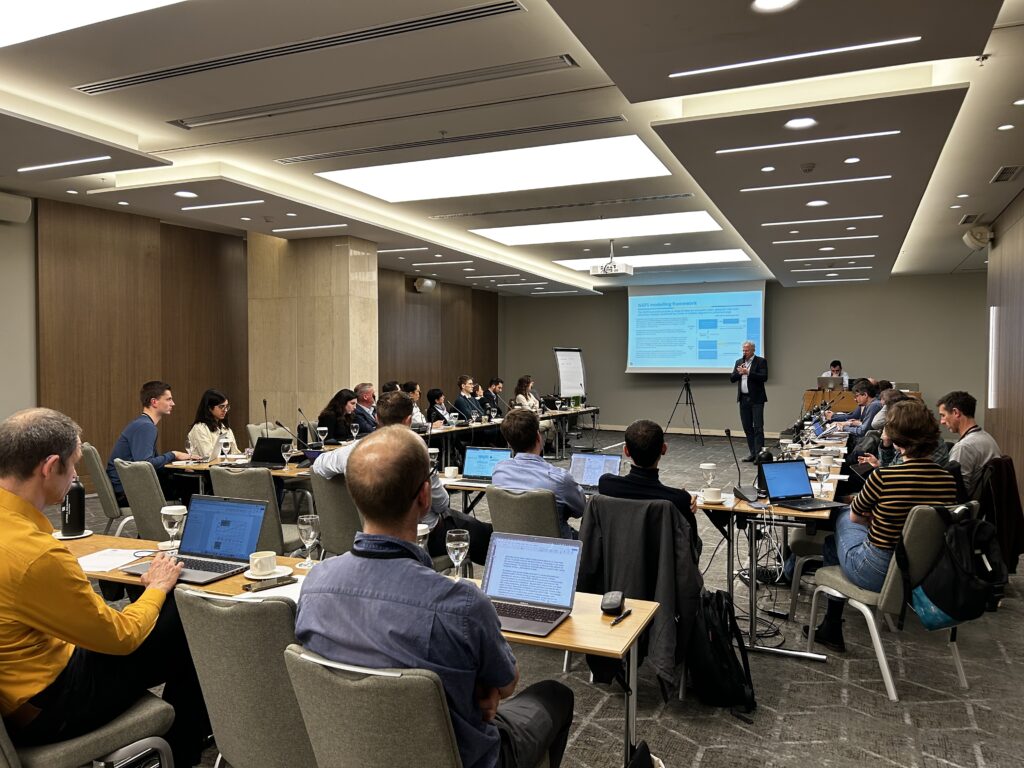Bruegel

The recent PRISMA workshop, held in Athens on January 30, 2025, brought together Greek stakeholders from finance, business, and policy sectors to discuss the critical role of financing in achieving the net-zero transition. Co-organized by E3Modelling and the PRISMA project and moderated by Bruegel, the workshop aimed to identify bottlenecks slowing down the climate transition, with a particular focus on financial aspects. The event provided a platform for dialogue between leading climate researchers, the PRISMA advisory board, and Greek finance practitioners, offering valuable insights into the financial requirements of the net-zero transition and the necessary technological advancements. The workshop concluded with several key takeaways:
- Cost of capital (CoC) matters: reducing financing costs for decarbonised energy projects is crucial for accelerating the transition.
- Policy certainty is essential: clear and stable policies are needed to reduce risk premiums and attract private investments.
- Global coordination is key: addressing climate change requires coordinated efforts at both the EU and global levels, particularly in emerging economies.
- Competitiveness and affordability: ensuring affordable energy and maintaining EU competitiveness are critical for public and political support to the transition.
The workshop began with an introduction by Panagiotis Fragkos (E3Modelling) and Massimo Tavoni (CMCC), who highlighted that despite progress in low-carbon technologies, global investments in decarbonisation are still falling behind what is required for net zero. The introduction was followed by three presentations by economic and climate experts part of PRISMA.
The impact of cost of capital on the transition towards net-zero
Bjarne Steffen (ETH Zurich) first presented how the cost of capital influences the transition to net-zero. He explained that renewable energy technologies, being capital-intensive, require large investments to buy down the cost-of-capital (CoC) learning curve. In contrast, high-carbon technologies often have lower upfront costs but higher operational costs. Steffen highlighted that the cost of capital varies significantly across sectors, technologies, and regions, and showed that large investments are necessary in high CoC regions. He stressed the importance of greater transparency in CoC across technologies, sectors and countries, and the efforts made by PRISMA and institutions like the IEA and IRENA to making this data available. More transparent data enables effective policymaking and supports reaching net-zero.
The role of climate risk in economic decision-making
Leonidas Paroussos (E3Modelling) followed with a presentation on how climate risks influence short- and long-term financial decisions. He noted that achieving net-zero by 2050 requires annual clean energy investments of $4.5 trillion globally, with the EU needing €620 billion annually until 2030. Paroussos highlighted the shift from high operational expenditure (OPEX) to high capital expenditure (CAPEX) in decarbonised energy systems, and presented the short- to medium term unit cost of production for clean energy technologies and the potential for cost reduction through learning effects. The closing remarks contrasted the transition and physical risks on the short and long term, besides short term macroeconomic effects (GDP, energy prices, inflation, unemployment), and sectoral firm level impact.
Updates to NGFS climate scenarios
Elmar Kriegler (PIK) provided an update on the latest NGFS climate scenarios, including a new damage function and actualised data, which explore pathways to limit global warming to 1.5°C. He stressed that while this target is still achievable and beneficial to almost all countries, it requires significantly more effort than previously estimated. Kriegler outlined the economic impacts of different scenarios, ranging from orderly to ‘too little, too late’, noting that physical risks from climate change outweigh transition costs. He also highlighted the challenges of decarbonizing the transport sector and the importance of early and coordinated policy action to maximize long-term benefits.
Discussion with advisory board and finance practitioners

Following the presentations, members of the PRISMA advisory board (mostly online), including experts from the IEA, IRENA, and the European Commission, shared their reflections. Some highlighted that the transition is fundamentally an economic issue, besides underlining the importance of CoC data and ensuring regulatory certainty.
Greek finance practitioners present in the room contributed to the discussion by highlighting the importance of financing capacity in shaping the pace and cost of the transition. They noted that foreign investment interest in Greece has increased post-COVID, with new financial tools supporting green energy projects. However, they also pointed out the challenges of financing in emerging economies and the need for simpler tools for smaller banks and businesses.
The PRISMA workshop underscored the complexity of financing the net-zero transition but also highlighted actionable steps to overcome these challenges. By fostering exchange between researchers, policymakers, and financial stakeholders, the workshop supports improving the quality of research outcomes of PRISMA to enable achieving net-zero.
This news is part of a project that has received funding from the European Union’s Horizon Europe programme under grant agreement No 101081604 – PRISMA.
Views and opinions expressed are however those of the speaker(s) only and do not necessarily reflect those of the European Union or the European Climate, Infrastructure and Environment Executive Agency (CINEA). Neither the European Union nor the granting authority can be held responsible for them.
Follow PRISMA’s outcomes and results on social media, via the #net0prisma
